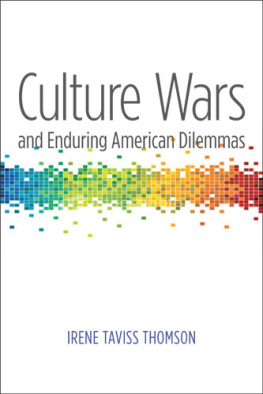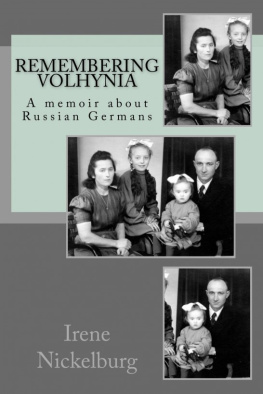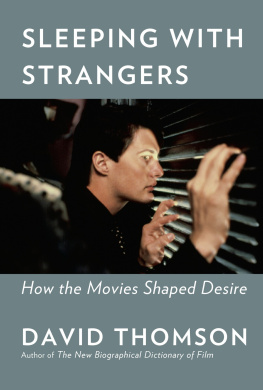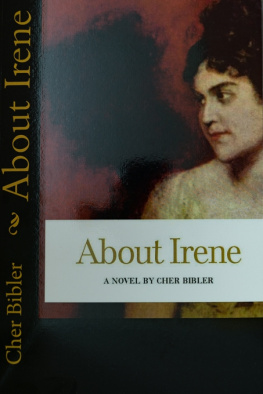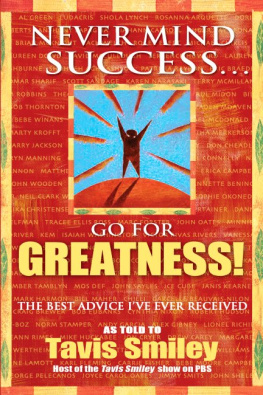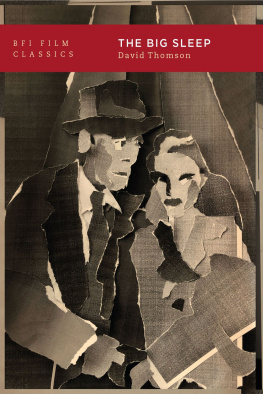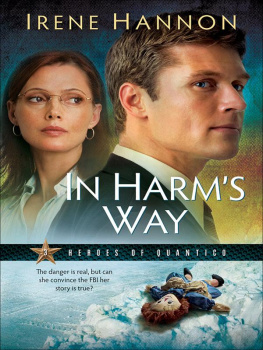Irene Taviss Thomson - Culture Wars and Enduring American Dilemmas
Here you can read online Irene Taviss Thomson - Culture Wars and Enduring American Dilemmas full text of the book (entire story) in english for free. Download pdf and epub, get meaning, cover and reviews about this ebook. year: 2018, publisher: The University of Michigan Press, genre: Politics. Description of the work, (preface) as well as reviews are available. Best literature library LitArk.com created for fans of good reading and offers a wide selection of genres:
Romance novel
Science fiction
Adventure
Detective
Science
History
Home and family
Prose
Art
Politics
Computer
Non-fiction
Religion
Business
Children
Humor
Choose a favorite category and find really read worthwhile books. Enjoy immersion in the world of imagination, feel the emotions of the characters or learn something new for yourself, make an fascinating discovery.
- Book:Culture Wars and Enduring American Dilemmas
- Author:
- Publisher:The University of Michigan Press
- Genre:
- Year:2018
- Rating:4 / 5
- Favourites:Add to favourites
- Your mark:
- 80
- 1
- 2
- 3
- 4
- 5
Culture Wars and Enduring American Dilemmas: summary, description and annotation
We offer to read an annotation, description, summary or preface (depends on what the author of the book "Culture Wars and Enduring American Dilemmas" wrote himself). If you haven't found the necessary information about the book — write in the comments, we will try to find it.
Culture Wars and Enduring American Dilemmas — read online for free the complete book (whole text) full work
Below is the text of the book, divided by pages. System saving the place of the last page read, allows you to conveniently read the book "Culture Wars and Enduring American Dilemmas" online for free, without having to search again every time where you left off. Put a bookmark, and you can go to the page where you finished reading at any time.
Font size:
Interval:
Bookmark:
 Page i Page ii Page iii
Page i Page ii Page iii and Enduring American Dilemmas
IRENE TAVISS THOMSON
THE UNIVERSITY OF MICHIGAN PRESS
ANN ARBOR
Copyright by the University of Michigan 2010
All rights reserved
Published in the United States of America by
The University of Michigan Press
Manufactured in the United States of America Printed on acid-free paper
Printed on acid-free paper
2013 2012 2011 2010 4 3 2 1
No part of this publication may be reproduced, stored in a retrieval system, or transmitted in any form or by any means, electronic, mechanical, or otherwise, without the written permission of the publisher.
A CIP catalog record for this book is available from the British Library.
Library of Congress Cataloging-in-Publication Data
Thomson, Irene Taviss, 1941
Culture wars and enduring American dilemmas /
Irene Taviss Thomson.
p. cm. (Contemporary political and social issues)
Includes bibliographical references and index.
ISBN 978-0-472-07088-6 (cloth : alk. paper)
ISBN 978-0-472-05088-8 (pbk. : alk. paper)
ISBN 978-0-472-02206-9 (e-book)
1. Culture conflictUnited States. 2. United StatesSocial conditions21st century. 3. United StatesPolitics and government21st century. 4. United StatesMoral conditions. I. Title.
HN59.2.T525 2010
303.60973dc22 2009033205
TO MICHAEL
Page vi Page vii- Page viii
Culture Wars and Warring about Culture
American culture appears to be deeply divided: those who believe there are absolute moral truths contend with those who place moral authority in individual judgment. Armed with these competing visions, orthodox versus progressive culture warriors clash on issues of abortion, homosexuality, feminism, school prayer, multiculturalism, popular culture, and university curricula. The population is increasingly polarized as a result.
The problem with this image is that it is not supported by survey data. American public opinion is considerably more ambivalent and internally inconsistent than the image of a culture war implies. Most Americans are moderate or centrist in both their political and religious beliefs. Very few are consistently for or against abortion and same-sex marriage, for example.
Proponents of the culture wars thesis acknowledge that most Americans occupy a position between the polar extremes. The issue, they contend, is not about what people think or believe, but about the public culturethe meanings and understandings enunciated by elites who seek to frame how we think. The competing moral visions of these elites inexorably pull all arguments into one or the other of the contending camps, effectively eclipsing the middle ground.
The question thus becomes whether American public culture is divided Page 2 into the two opposing camps of the culture war, or whether both sides share the same American cultural ideas in propounding their differing visions. I find support for the latter view in my analysis of the 436 articles dealing with culture war issues that were published in four popular political magazines between 1980 and 2000. The culture war debaters in the pages of National Review, Time, The New Republic, and The Nationmagazines representing the mainstream American political spectrum, from National Review on the right to The Nation on the leftadhere to remarkably similar cultural principles.
Rather than dividing along the lines of orthodox versus progressive morality, the arguments of culture war partisans are nuanced and riddled with internal disagreements. There are abortion rights supporters who regret the immorality of abortion and antihomosexuality advocates who dispute whether or not homosexual behavior is a matter of morality. The symbols and rhetoric of the two sides often mirror each other. Consider the following statement: A culture that is at once moralistic, self-righteous, alienated, and in a minority will constantly be tempted to break the rules of political discourse. Are these the words of a progressive describing the efforts of Christian Fundamentalists to influence American politics? No. This is a description of the Left written by a well-known conservative (Bork 1989, 27).
While there are doubtless persons for whom the binary logic of the culture wars is all-important, the elites represented in the pages of these mainstream mediathe journalists and intellectuals, feminists and family values advocates alikeinstead reflect shared cultural patterns. These discussions take place within the context of enduring American dilemmasabout the role of religion in politics and society, the tension between morality and pragmatism, how much individualism should be sacrificed for larger community goals, the meaning of pluralism in a nation of immigrants, and how to reconcile the will of the people with standards enunciated by elites.
Though they disagree about specific issues and policies, the partisans on all sides subscribe to the following ideas: (1) respect for religion but uncertainty about its role; (2) use of moral frameworks but without moralizing; (3) belief in individualism but not to excess; (4) respect for pluralism but within one culture; (5) ambivalence toward elites; and (6) a high regard for moderation. The first five of these items represent dilemmas to which Page 3 the high regard for moderation is something of an answer. Thus, religion is of great importance, but American society is both secular and diverse in its religions. Individualism is a supreme American value, but the needs of the community must be respected too. Ironically, the only unalloyed American virtue is that of moderation. Moderation, of course, does not constitute a dilemma. But the very vitality of moderation presents dilemmas for social movements. In a society that views as beyond the pale both ardent feminists and committed traditionalists, the strongly religious and atheists, fervent supporters and opponents of abortion, those who attempt to alter the culture are pressured toward a centrism that may be antagonistic to their basic beliefs.
While issues such as abortion or same-sex marriage may be new, the underlying dilemmas are of long duration. If every culture can be seen as a kind of theater in which certain contrary tendencies are played out (Erikson 1976, 82), these are classic American cultural conundrums. And though they may not be the only dilemmas in American culture, they are the ones that are central to the culture wars.
Participants and observers alike contend that the culture wars originated in the late 1960s, when challenges to traditional values were dubbed the counterculture. The very idea of a counterculture suggests a new self-consciousness about cultural struggles regarding values and lifestyles. In the trajectory from the counterculture to the culture wars, what is new is not the political struggle over cultural issues but rather a heightened awareness of culture itself and those who seek to shape it. Both social scientists and the general public have come to think of culture as changeable and contested. And a self-conscious competition for cultural dominance has become more evident. While the social construction of reality has not become a household term akin to charisma or lifestyle, an awareness of the provisional nature of social assumptions has entered popular consciousness (Wrong 1990, 28).
In one of the earliest and best-known portraits of the culture wars, James Davison Hunter (1991) described a fundamental split between orthodox and progressive views of morality and suggested that this divide cuts across Page 4 class, religious, racial, ethnic, political, and sexual lines. In the eyes of one partisan, the culture war is apparent in the simultaneous emergence of moral disarray and moral revival symbolized by the success of both gangsta rap and gospel rock (Himmelfarb 1999, 117).
Font size:
Interval:
Bookmark:
Similar books «Culture Wars and Enduring American Dilemmas»
Look at similar books to Culture Wars and Enduring American Dilemmas. We have selected literature similar in name and meaning in the hope of providing readers with more options to find new, interesting, not yet read works.
Discussion, reviews of the book Culture Wars and Enduring American Dilemmas and just readers' own opinions. Leave your comments, write what you think about the work, its meaning or the main characters. Specify what exactly you liked and what you didn't like, and why you think so.

